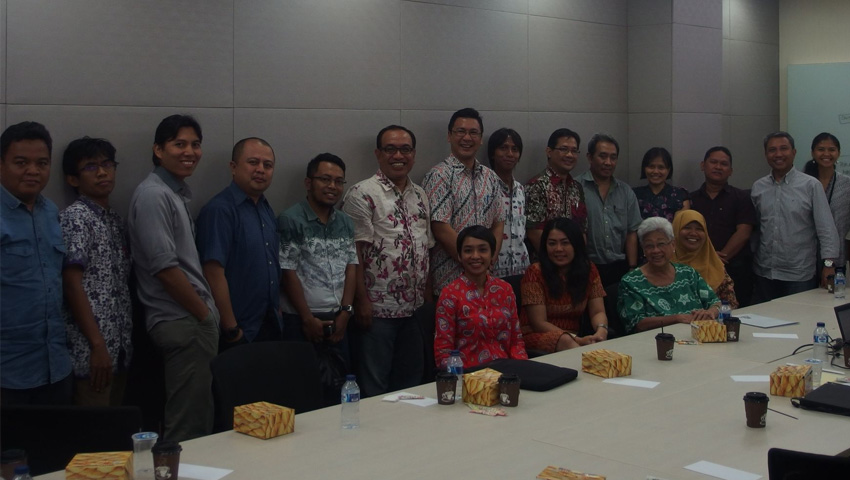As a follow up to the KSI Strategic Planning Workshop on 6-7 August 2015, the program is currently in the process of establishing working groups that will facilitate policy-priority dialogues in different knowledge communities. KSI defines a knowledge community as an adaptive ecosystem which includes individuals and organisations in the public, private and civil society sectors that are actively engaged in the production, transmission, demand and use of all kinds of knowledge and evidence that contributes to public policy processes.
One of the working groups will focus on Research and Higher Education issues. The first meeting of this group was held at Universitas Atma Jaya in Jakarta on September 30 2015, with various stakeholders participating. These included Bappenas, the Indonesian Academy of Science (AIPI), the Ministry of Research, Technology, and Higher Education (Kemenristekdikti), and representatives from KSI research partners namely PPH Unika Atmajaya, PPIM UIN Syarif Hidayatullah, PKMK UGM, ELSAM, and Seknas FITRA. The main purpose of the meeting was to consolidate a strategic approach and outline the work plan of the Working Group on Research and Higher Education.
The Working Group needs to incorporate five policy issues into the work plan. These are: (1) Identifying and addressing barriers for university-based research (2) Diversification of funding for research (3) Identifying and addressing barriers in research policy and procurement regulations (4) Expanding private sector funding and philanthropy for social science (5) Supporting policy journals. The Working Group Coordinator, Prof Mayling Oey Gardiner (AIPI), agreed that funding and the production of journals were two of the main issues in the research arena. Yenny Sucipto from Seknas Fitra also commented that, “The budget allocated for research at ministry and parliamentary level have certain regulations that do not lead research to be in synergy with the universities. As a result, human resources in higher education are not optimally utilised.”
Prof Mayling Oey Gardiner (AIPI) praised the participants for attending the initial meeting of the working group. “There is a lot of knowledge in this room,” she said. She added that the challenge for the group is how to continue to achieve specific outcomes, within and beyond the 18 months of the program duration. Dr. Amich Alhumami from the Education Directorate of Bappenas, also pointed to the value of the working group’s inaugural meeting, "The approach is valuable because it starts something new and important in the cooperation between government institutions, the private sector and other interested parties to develop higher education. It also supports the growth of scientific traditions through innovative and developmental research that is urgently needed by higher education institutions.”
He noted that the National Medium Term Development Plan (RPJMN) 2015-2019 states that the education sector has a responsibility to provide a framework of quality, relevance and competitiveness of higher education. The working group is planning to have a second meeting focusing on specific policy issues and detailed work plan. KSI will also hold the first Village Law and Bureaucracy Reform working group meeting this week.






